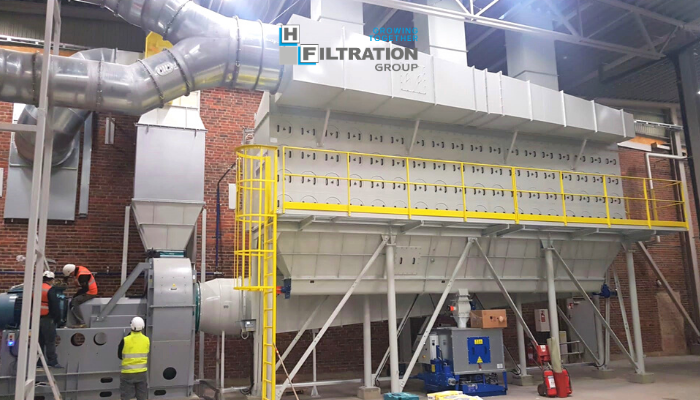The abatement of dusts present inside the pharmaceutical and cosmetic industries is not to be underestimated as it is indispensable to guarantee conditions of extreme purity of the working environments, but not only, let's see why together.
When talking about the pharmaceutical industry, one inevitably thought is the production of medicines mainly through the use of powders. This aspect makes clear the need to use special air filtration systems not only to protect those who work daily with these substances, but also because the presence of volatile compounds could contaminate the production itself. In fact, the pharmaceutical industry is subject to very strict regulations, sometimes even using clean rooms for some compounds. In these cases, adequate air filtration, to ensure maximum purity, is therefore essential.
Another aspect to be considered is related to the possibility of emission of polluting compounds into the atmosphere. Here the consequences of this eventuality are obvious, as they could cause the pollution of entire areas due to the emissions of the company and, if above the permitted limits, subject to financial penalties.
Reducing dust in the pharmaceutical industry: an essential requirement for collective well-being

Some production sectors cause the dispersion of dust into the air that is extremely harmful both to the health of workers and to machinery, as well as contaminating the production itself. One of these sectors is the pharmaceutical industry.
The absence of adequate extraction systems becomes therefore a very serious problem to be solved. It is necessary to turn to specialized realities to proceed to the design and installation of ad hoc filtration systems, able to filter the air from the nano particles present inside.
Not all systems are in fact appropriate because if they are not well designed they could cause an increase in dust in the environment. The solution? To turn to companies specialized in industrial filtration to develop specific systems for the single pharmaceutical or cosmetic company, which take into consideration not only the volume of pollutants produced but also their nature and their possible toxic potential.



